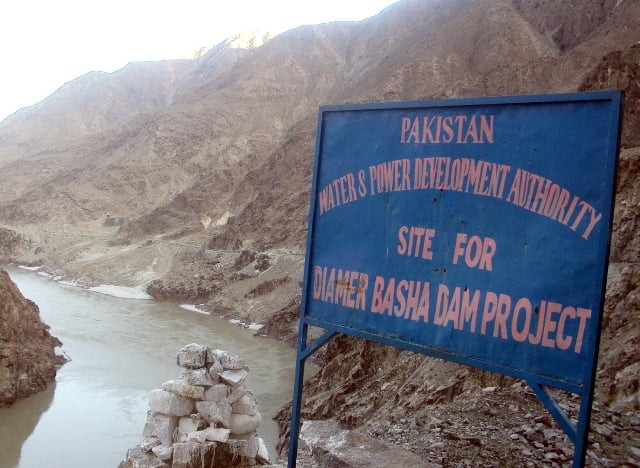Diamer-Bhasha Dam: ADB asks govt to focus on people, not just water, power
Bank says not enough done on resettlement, dispute between K-P, G-B.

While Pakistan frets over megawatts generated and million acre feet of water stored, the lead financer of the Diamer-Bhasha Dam says the country should focus on social aspects of the affected population and address issues of environmental degradation and revenue sharing between contesting territories.
With an estimated price tag of $11.2 billion, the project is planned to be completed in 12 years. It will generate 4,500 megawatts of electricity, besides storing 8.5 million-acre-feet of water for agriculture purposes.
Satisfactory resettlement
“Pakistan has not been focusing on social aspects of the project as much as one could hope,” said Rune Stroem, the Asian Development Bank’s (ADB) Head of Energy Division on Tuesday.
“The resettlement work has been done but there are still gaps where the government needs to bring in improvement as per international standards,” Stroem said while speaking to journalists along with the bank’s country director to Pakistan, Werner Liepach, after conclusion of a visit aimed at ‘critically reviewing the mega project’.
Stroem said the project’s success hangs on local people’s satisfaction with resettlement activities.
Stroem said the legal dispute over sharing of revenues between Gilgit-Baltistan and Khyber-Pakthunkhwa has to be worked through and “no sufficient work has been done yet” on environment.
“The ADB is fully aware that there will be strong debate on revenue sharing and we can give advice but at the end the issue will have to be decided by the Council of Common Interest,” Stroem said.
The K-P and G-B governments are disputing over the ownership of an 18-kilometre-long belt, in a bid to receive a share in income from power generation.
The G-B Legislative Assembly has passed a resolution against the K-P government’s claim and intends to take the matter to the Supreme Court if it is not amicably resolved.
Stroem also said that there was a need to ensure minimum water flows, during the storage period, to offset negative impact on the environment. No water flows at the time of construction and storage will have adverse effects, he added.
Bank’s role
An unwritten agreement has been arrived at between the bank and the government, according to which the ADB will be a senior lender, co-financer and the financial adviser on the project, Stroem said.
Next week, both parties will review the draft of the Memorandum of Understanding that clearly defines the bank’s role in project execution, he added.
Published in The Express Tribune, December 14th, 2011.



















COMMENTS
Comments are moderated and generally will be posted if they are on-topic and not abusive.
For more information, please see our Comments FAQ